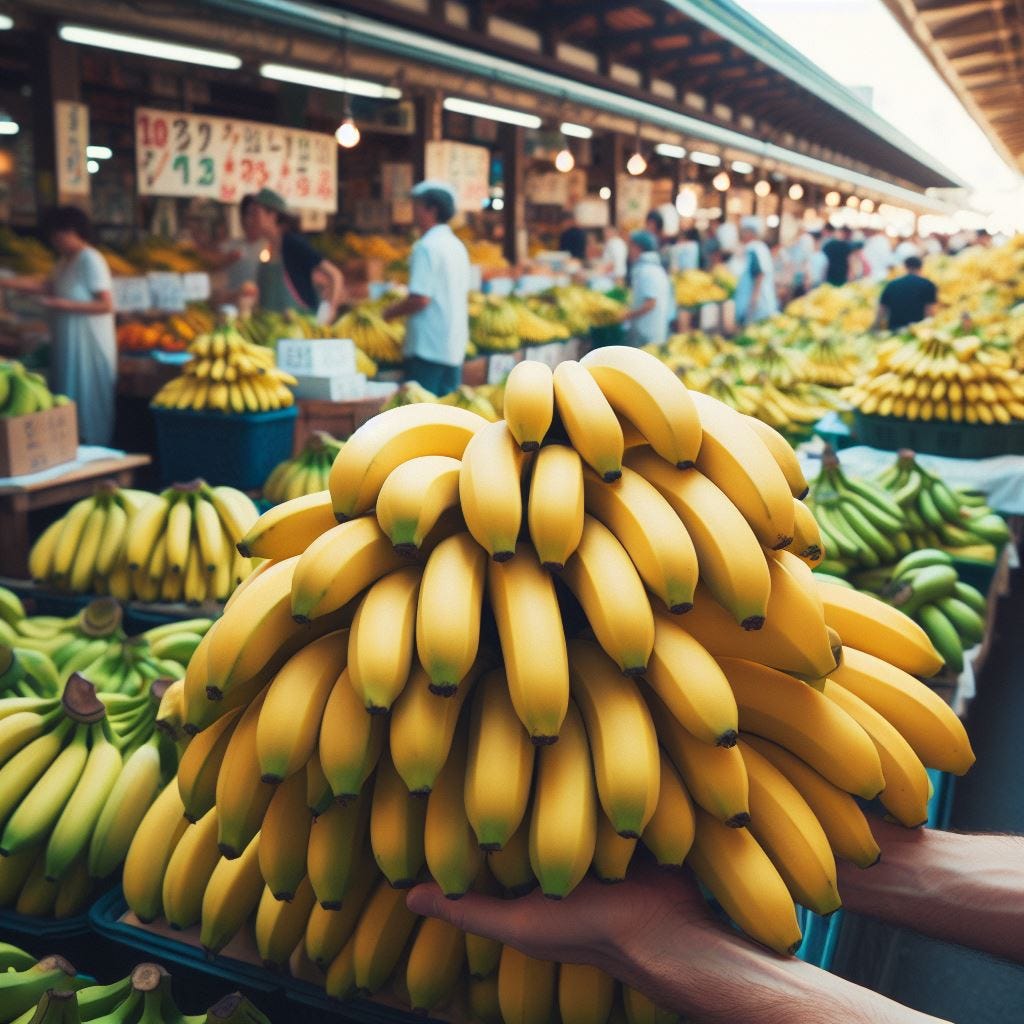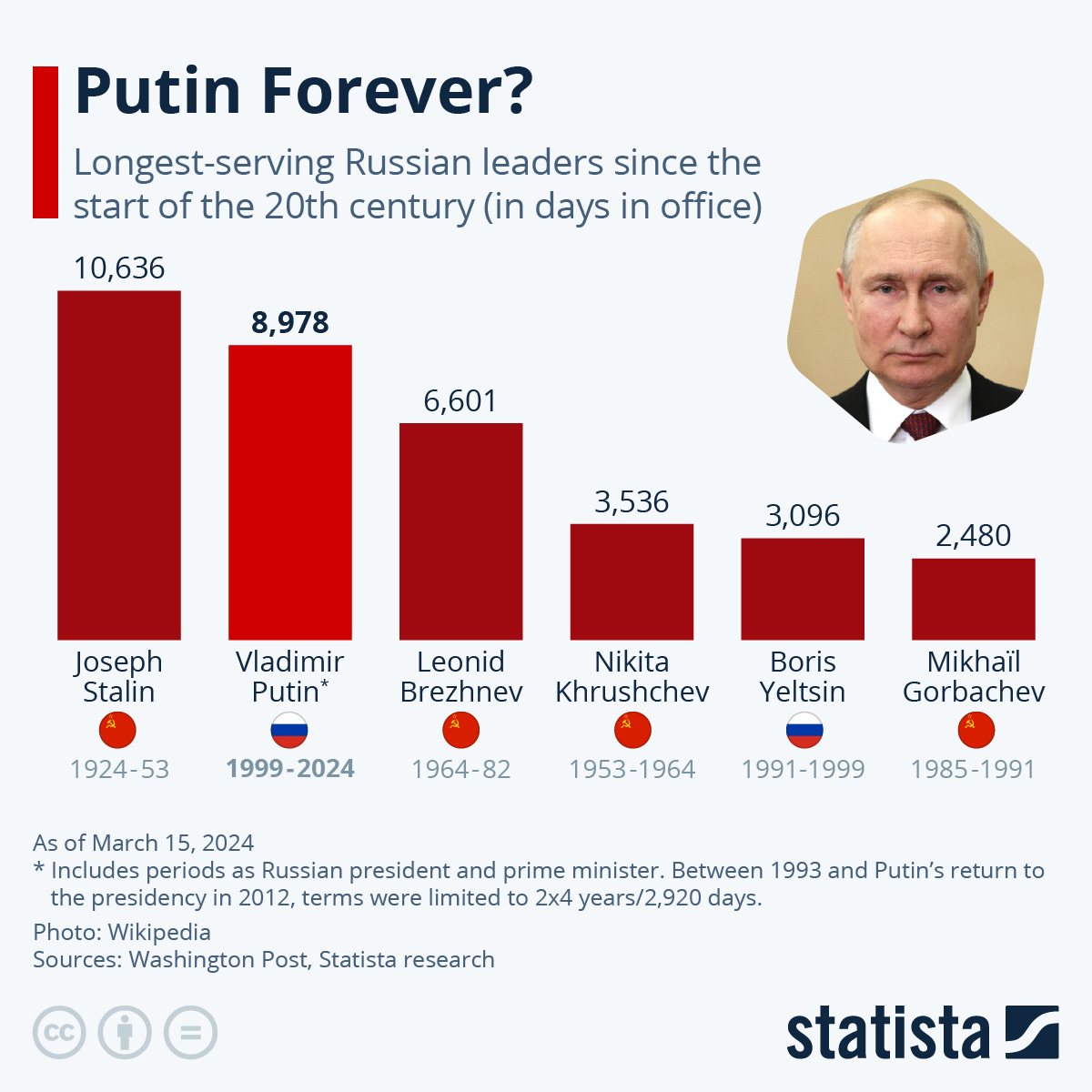This week…
Your reading time is about 7 minutes. Let’s start.

I read a Guardian opinion piece by food journalist Dan Saladino about how we only eat one type of banana when there are thousands of varieties out there.
This is a largely Western commercialisation problem. It has a long colonialist and capitalist history. For a long time, I stopped eating bananas after moving away from home because the single variety available to me is the least appealing in terms of taste (there is none), texture (there is no bite), size, and price. The only thing good about the Cavendish is that I will never, ever, ever bite into a seed.
Every time I read about the cultivation and commercialisation of the Cavendish, I think about how it resembles the evolution of the news media: Develop a particular trait, be controlled by maximum profit-minded moguls, quickly multiply its production everywhere, but also become very extremely susceptible to diseases and potential extinction. You can say the same about how all websites look alike, how all coffee shops have the same Instagrammable vibe, and how every social media platform copies each other’s features.
Meanwhile, the local bananas, not quite as mass-marketed, have a small share and looked to be dangerously squeezed out of the store shelves. Bananas are, in fact, so versatile. Its fruit, of course, can be eaten as is, but also cooked as sweet or savoury desserts and meals. The flower, also called the heart, is edible (it tastes a bit like artichoke, but I hope it never will cost as much). The pith, with a bit of preparation, is also edible. And the leaf is used to package food for steaming or grilling, adding a hint of flavour. You can also serve meals on the leaf.
The only other plant that I think is just as versatile, is the coconut. And we’re only talking about their culinary uses at this point. I always used to say that if I were only allowed to eat a single food for the rest of my life, it’s probably the coconut. Anyway, I’m off on a tangent; but wouldn’t it be nice to be able to consume different varieties of bananas, instead of just one? You know, like apples.
And now, a selection of top stories on my radar, a few personal recommendations, and the chart of the week.
ICYMI: The Previous Block on Helen Thomas, truth, and trust. CORRECTION NOTICE: None notified. SURVEILLANCE ECONOMY
China students ‘stressed’ by dozens of surveillance cameras in university class told devices are digital media teaching aids ($)
Liya Su for SCMP:
A university in China which has installed dozens of surveillance cameras in one of its classrooms as part of its teaching process has triggered a widespread debate about privacy on mainland social media.
The Baoding University, in Hebei province, northern China, was filmed setting up the cameras – almost one per student – in a calligraphy teaching class.
Some students complained that it made them feel stressed, The Paper reported.
In a clip secretly filmed by a student, rows of cameras can be seen hanging from the ceiling. The quiet classroom is filled with students concentrating on their studies.
SCMP has a metered paywall, so you might not get the full article when clicking the link, but I hope you’ll get to at least see the image of the cameras in the classroom. I thought there was only one camera tucked in a corner, but they were above every desk! Loosely linked:
Reboot of Buenos Aires facial recognition plan fuels privacy fears by David Feliba for Context.
Airbnb is banning indoor security cameras by Emma Roth for The Verge.
If you watched certain YouTube videos, investigators demanded your data from Google by Chase DiBenedetto for Mashable.
PLATFORM WARS
Unpacking Gan Jing World
Sarah Grevy Gotfredsen for CJR:
Gan Jing World (which translates to “Clean World” in Chinese) consists of feel-good videos, often lifted from YouTube without the original content creator’s consent. The videos supposedly follow the site’s four guiding principles of “no violence, no pornography, no crime, and no drugs.” Button’s YouTube channel, which features stone-carving tutorials, likely secured a spot on Gan Jing World because it met these criteria.
Sandwiched between videos republished from YouTube are ads and channels for Falun Gong–aligned organizations and local businesses. These include the ubiquitous dance troupe Shen Yun as well as the anti-CCP media groups the Epoch Times and New Tang Dynasty Television (NTD)—both of which are owned by the Epoch Times Media Group. Together, these sites make up a tight-knit network echoing the teachings of Falun Gong’s leader and founder, Li Hongzhi (or “Master Li”).
But TikTok is the real enemy. Loosely linked:
Who owns TikTok’s parent company? Despite what Brian Kilmeade says, it’s not the Chinese government by Jeff Cercone for Poynter.
Yes, TikTok sucks. But the rules for tech giants must be better than ‘it’s only bad if China does it by Samantha Floreani for The Guardian.
Europe’s far right uses TikTok to win youth vote by Clothilde Goujard, Elisa Braun, and Mark Scott for Politico.
WORD WARS
Election misinformation is a problem in any language. But some get more attention than others
David Klepper for AP:
The laws governing social media platforms vary by nation, and critics of tech companies say they have been faster to address concerns about misinformation in the U.S. and the E.U., which has recently enacted new lawsdesigned to address the problem. Other nations all-too often get a “cookie cutter” response from tech companies that falls short, according to an analysis published this month by the Mozilla Foundation.
The study looked at 200 different policy announcements from Meta, TikTok, X and Google (the owner of YouTube) and found that nearly two-thirds were focused on the U.S. or E.U. Actions in those jurisdictions were also more likely to involve meaningful investments of staff and resources, the foundation found, while new policies in other nations were more likely to rely on partnerships with fact-checking organizations and media literacy campaigns.
As we like to say, dan lain-lain. Loosely linked:
From the dodgy dossier to the Cambridge controversies, not all plagiarism is alike by Ibrahim Al-Marashi for New Lines Magazine.
Quebec’s new French revolution by Mark Mann for Maclean’s.
A changing French language is nothing to be afraid of by Jessica Phelan for RFI. I mean, il y a des jeunes qui trouvent ça “cool” de sortir des mots en anglais, right, François Legault?
What I read, listen, and watch…
I’m reading the English translation of Ru (2012) by Kim Thuy. Originally written in French and published in 2009, Sheila Fischman translated it into English. The author narrated the English audiobook. In Vietnamese, ‘ru’ means lullaby; in French, it is a small stream, but it also signifies a flow of tears, blood, and money. The book is poetic (though I am not romanticising displacement!), telling the story of exile, the Vietnamese boat people, the Malaysian refugee camp, and their arrival in Quebec. Here is a hilarious Q&A with the author by Terry Hong for Bloom in 2013.
I’m listening to Paris Marx’s Tech Won’t Save Us to hear Jacob Silverman’s take on what the TikTok ban reveals about U.S. tech policy.
I’m watching CBC’s The Fifth Estate story on the alleged killing of a B.C. Sikh activist at India’s demand. You won’t be able to watch this in India.
I’m also watching ABC News’ Foreign Correspondent episode on the same allegation. At least the Australian media managed to go to India for this piece!
Other curious links, including en español et français:
Radical right now unstoppable in EU’s Inner Six, Euronews polls show by Gerardo Fortuna for Euronews.
My search for the mysterious missing secretary who shaped chatbot history by Rebecca Roach of the University of Birmingham for The Conversation.
What does it mean to be a Hong Konger now? by Yvonne Lau for The Walrus.
Epidemia de soledad por José Luis Lezama en Nexos.
No importa la plataforma ni el algoritmo, son los humanos los que vuelven tóxicas las redes sociales por Jordi Pérez Colomé en El País.
Cybersécurité : ces étranges messages de l'armée française sur les réseaux sociaux cachent en réalité un exercice par Audrey Abraham dans France Info.
Géants du numérique : la France fait le choix de la soumission par Salma El Bourkadi dans Nouvel Obs.
Chart of the week
This Statista chart shows the longest-serving Russian leaders in the 20th century (in days in office). Katharina Buchholz with the write-up.







Lovely analogy. Team Banana!